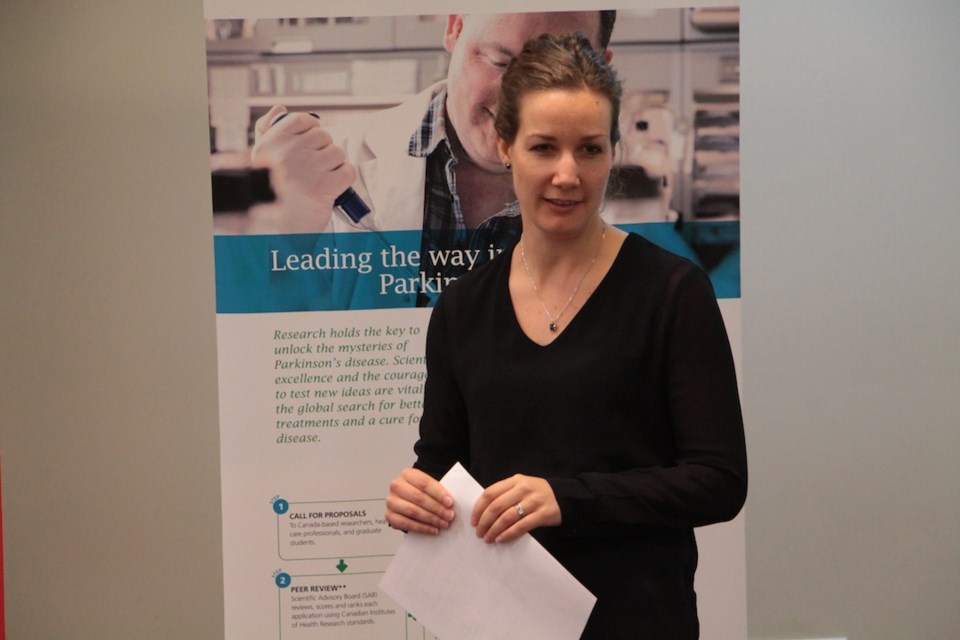We all know that exercise is good for us, but for someone with Parkinson’s Disease, it is vital. The Exercise is Medicine event, presented by Parkinson Canada and the Yorkton Public Library, showed people in the community the importance of exercise when talking about Parkinson’s Disease.
Sumita Hintz with Prairie View Physiotherapy spoke about how exercise helps, as well as the signs of symptoms of Parkinson’s and helping people understand what’s going on.
The mechanisms behind Parkinson’s explain why exercise is so helpful, explained Hintz. Dopamine is not produced by the body when someone has Parkinson’s.
“What exercise does is it actually increases the release of dopamine, which then physically creates more coordinated movement.”
Beyond the physical benefits of exercise, Hintz said that it’s also empowering, and people can take control. There is no cure to Parkinson’s at the moment, and it’s a progressive disease, but Hintz said it gives people the chance to keep control in their own way.
“We’re giving people the opportunity to fight back in their own way, and take back some of their independence.”
It’s also important to get people educated about Parkinson’s, Hintz believes, because it reduces the unknowns. The more people know about Parkinson’s, the more they can recognize the signs and symptoms, as well as reduce the fear around helping people they see in the wider world who might have the disease. For family members, it’s a way to help their family members keep on track with their exercise program.
Kelly Pierson with Parkinson’s Canada said that they are committed people to living their best life with Parkinson’s, and that means presentations like the one at the Yorkton Public Library to help. She also notes that they have had success with exercise programs like Rock Steady Boxing in Regina, which has been a hit with the men with the disease in the area.
While Parkinson’s is most often associated with the elderly, with the most common age of onset being in the sixties, Pierson noted that it can strike at any age, and at the recent walk in Regina, the youngest person with the disease was 13.




